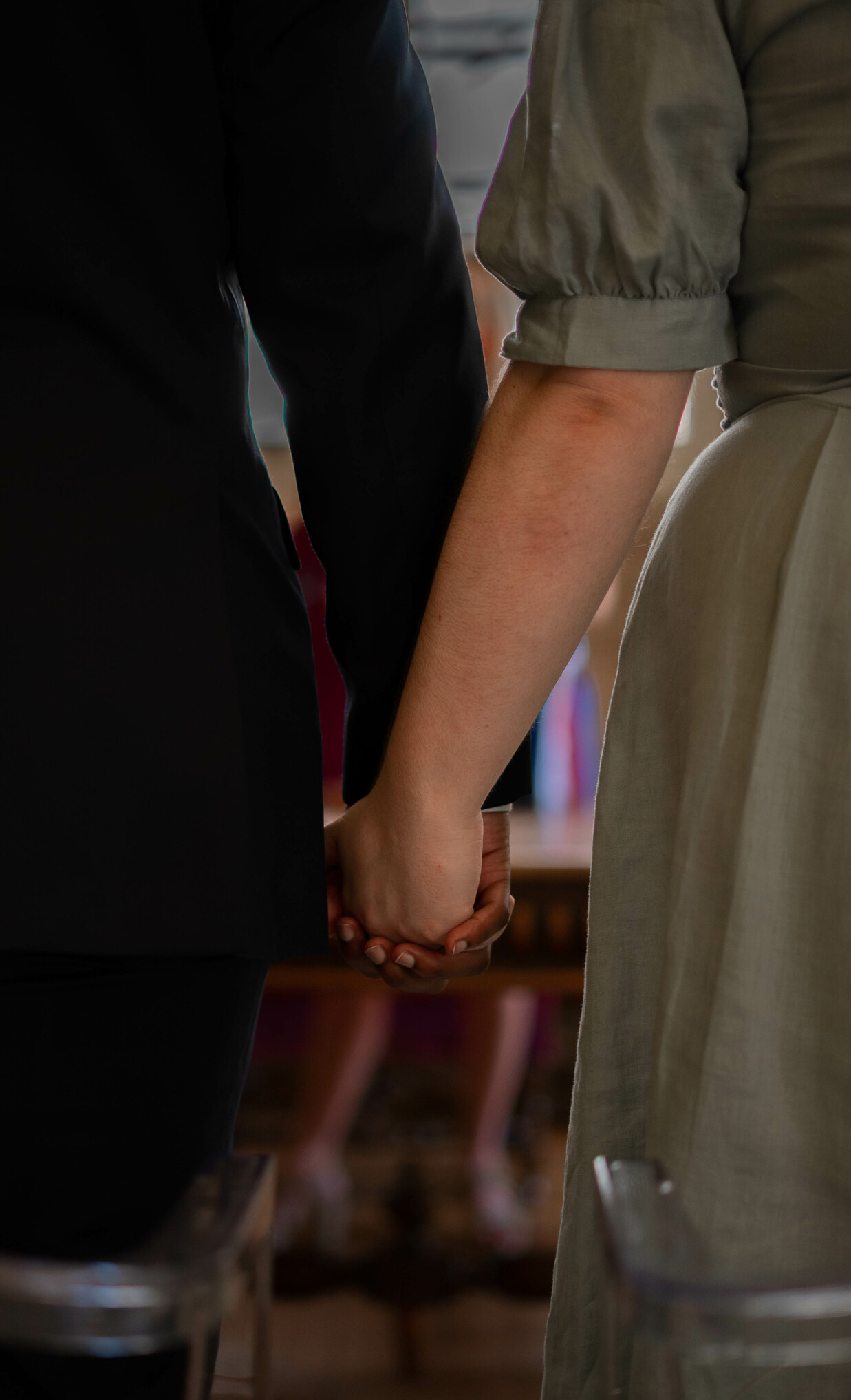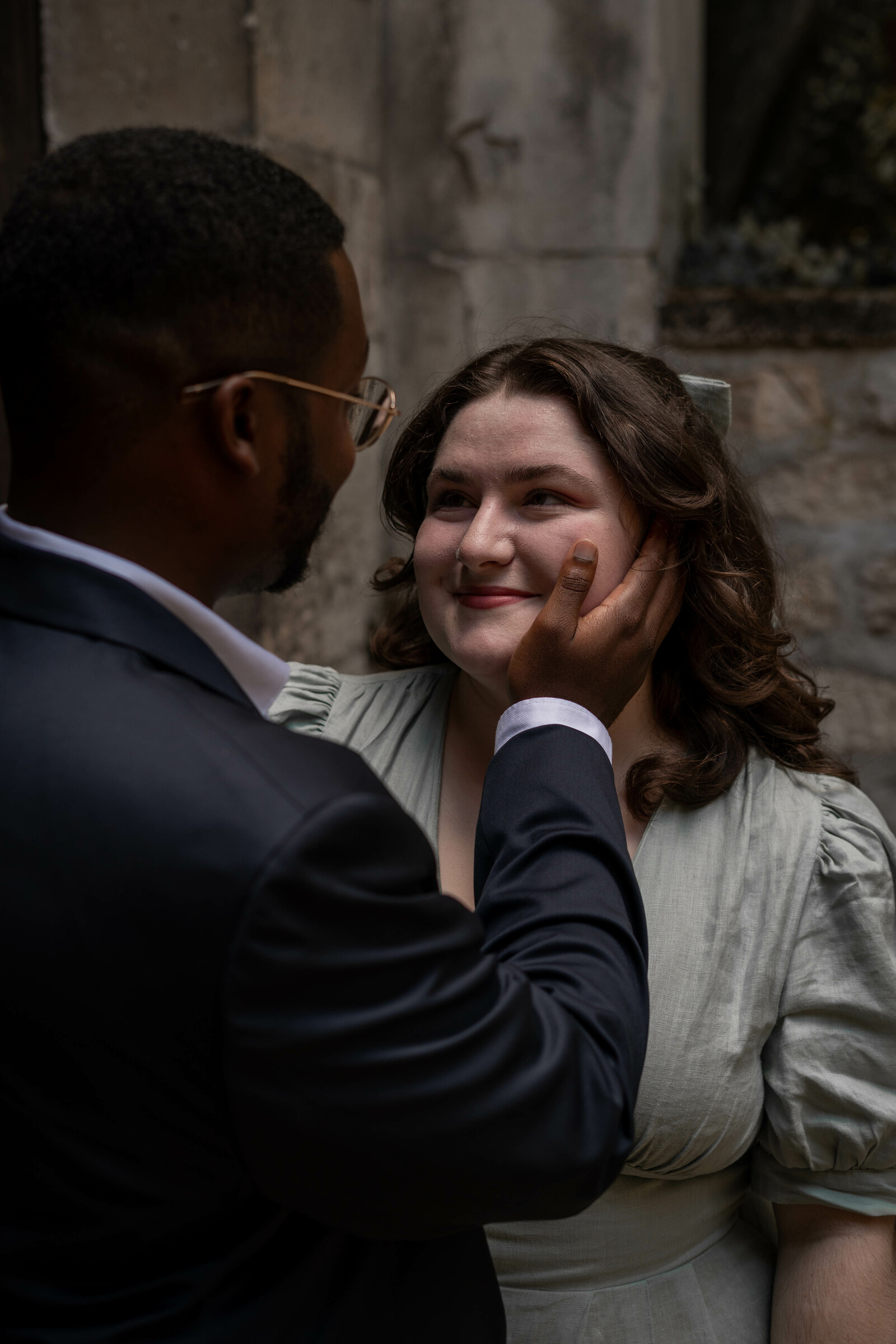
How To Get Married In France as Two Foreigners: Post-Ceremony Procedures
What legal procedures need to be completed after getting married in France? Maria and I got married in July at the Reims town hall, and as Americans living in France, we knew that once our civil ceremony was over, we would have a few important legal items to take care of on our newlywed to-do list. After all, what would a marriage in France be without a bit of post-ceremony paperasse (paperwork)? Keep reading to discover the key things we had to take care of after our big day.
Procedures We Completed
Picking up our acte de mariage
The Monday following our marriage, I went to the Hôtel de ville de Reims to pick up our acte de mariage, or marriage certificate. This process was free and didn’t require making an appointment. We were provided with several copies of our marriage certificate, including a multilingual version.
Notifying my employer
In France, salaried employees are allotted four days of paid leave following their marriage. Since I completed the second year of my master’s degree en alternance, I got to enjoy all of the perks of salaried employee status throughout my contract. Naturally, I took advantage of this fact and notified my employer about my marriage and time off. If you’re changing your name, you should also inform your employer to update your work contract, email, caller ID, paystubs, business cards, and anything else with your name on it.
Notifying CAF
As students, we received monthly housing aid from the Caisse d’allocations familiales (CAF), or the benefits office. We notified CAF about our marriage by changing our status from concubinage (cohabitation) to marié (married) using the online platform. Updating CAF in a timely manner will keep your housing aid payments accurate and consistent.


Notifying the tax office
Getting married in France almost always means filing joint income taxes. As residents, we needed to inform the tax authorities of our new status as a married couple. To make the change, one of us logged into the online platform, declared our marriage, and entered the new spouse’s information. Answering all of the verification questions about our various addresses and incomes in France over the years was time-consuming, but straightforward. Afterwards, the change was immediately reflected on both of our accounts.
Notifying our bank
Because our bank accounts listed our marital statuses, we decided to let the bank know we had gotten married. Though it isn’t required, we wanted to ensure that our new relationship status was accurately reflected on both of our accounts.
Procedures We Skipped
Updating identity documents
Though it would have been customary in both our home country, the United States, and our adoptive country, France, for Maria to retire her maiden name in favor of a married name that matches mine, she decided against it. We weighed historical, logistical, and personal reasons when deciding that sharing a last name wasn’t important for our marriage. However, if you’re changing your name, you’ll need to take care to update all of your identity documents, like your passport, social security card, driver’s license, voter registration, professional licenses, residence card, and more.
Updating l’Assurance Maladie
Since Maria and I are both individually covered under the French healthcare system, we inquired as to whether or not we needed to complete any post-marriage procedures. Because we are both currently covered and our marriage did not include a name change, we didn’t have to modify anything.



Updating our complimentary health insurance
I have covered both Maria and myself with my company-provided mutuelle, or complimentary health insurance, since I began my alternance contract. Because she was already covered and our marriage did not include a name change, we didn’t have to modify anything.
Updating other miscellaneous accounts
If you’re changing your name, any and all accounts associated with your previous name will need to be updated. Since our marriage did not include a name change, we didn’t need to update any loan and credit card providers, phone and wifi service providers, utility companies, titles and registrations, loyalty programs, investment accounts, email and social media accounts, and more.

Fortunately, our post-ceremony procedures were relatively few and simple as two Americans who got married in France. Though each couple will need to assess their own personal situations to work out which procedures they must complete, we hope that our experience sheds some light on some of the most common ones. Have you ever gotten married in a foreign country? Do you have plans to get married soon? Want to know more about our marriage experience in France? Let us know in a comment!
Learn more about getting married in France as Americans!
You may also like…
You May Also Like

An Exclusive Glimpse Into Our Expat Life in France
January 4, 2023
What We Eat in a Day: American Expats in France
May 11, 2022


One Comment
Brigitte Lacour
French here. In France a woman is legally only known by her birth name ( sécurité sociale, retraite…). It’s usually Mme X épouse Y .
You can ask to have your married name add to your ID, driving licence,… but it will be on the legal form X épouse Y.
If you vote in France you will be registered under your birth name and will be annonce under it “Mme X, a voté”
It’s only a custom to be known under your married name, not an obligation and the husband could, but it’s rare, also be known under his wife name. Could be useful in the daily life when your name is a bit complicated to pronounce correctly.
I personally rarely used my married name, my daughter is doing the same.